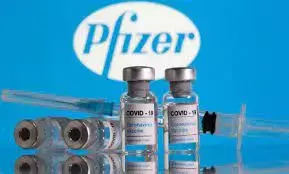- Home
- Medical news & Guidelines
- Anesthesiology
- Cardiology and CTVS
- Critical Care
- Dentistry
- Dermatology
- Diabetes and Endocrinology
- ENT
- Gastroenterology
- Medicine
- Nephrology
- Neurology
- Obstretics-Gynaecology
- Oncology
- Ophthalmology
- Orthopaedics
- Pediatrics-Neonatology
- Psychiatry
- Pulmonology
- Radiology
- Surgery
- Urology
- Laboratory Medicine
- Diet
- Nursing
- Paramedical
- Physiotherapy
- Health news
- Fact Check
- Bone Health Fact Check
- Brain Health Fact Check
- Cancer Related Fact Check
- Child Care Fact Check
- Dental and oral health fact check
- Diabetes and metabolic health fact check
- Diet and Nutrition Fact Check
- Eye and ENT Care Fact Check
- Fitness fact check
- Gut health fact check
- Heart health fact check
- Kidney health fact check
- Medical education fact check
- Men's health fact check
- Respiratory fact check
- Skin and hair care fact check
- Vaccine and Immunization fact check
- Women's health fact check
- AYUSH
- State News
- Andaman and Nicobar Islands
- Andhra Pradesh
- Arunachal Pradesh
- Assam
- Bihar
- Chandigarh
- Chattisgarh
- Dadra and Nagar Haveli
- Daman and Diu
- Delhi
- Goa
- Gujarat
- Haryana
- Himachal Pradesh
- Jammu & Kashmir
- Jharkhand
- Karnataka
- Kerala
- Ladakh
- Lakshadweep
- Madhya Pradesh
- Maharashtra
- Manipur
- Meghalaya
- Mizoram
- Nagaland
- Odisha
- Puducherry
- Punjab
- Rajasthan
- Sikkim
- Tamil Nadu
- Telangana
- Tripura
- Uttar Pradesh
- Uttrakhand
- West Bengal
- Medical Education
- Industry
Transient perimyocarditis reported in adolescents following Covid vaccination: Study

Vaccines are paramount in the effort to end the coronavirus disease 2019 global epidemic. BNT162b2 is approved by US FDA for the vaccination of adolescents over 16 years of age. The BNT162b2 phase 3 study, which was performed in people over 16 years old, showed a favorable safety profile. In phase 3 trial, local effects reported were pain at injection site and injection site erythema or swelling, while reported systemic reactions included mainly fatigue, headache, fever and chills.
Researchers from Children's Hospital,Israel report a series of adolescents who presented with perimyocarditis following Pfizer(BNT162b2) vaccination.
In this study patients aged 16-18years across 3 medical centers in Israel who received Pfizer-BioNtech vaccine were enrolled. A comparison of pericarditis and myocarditis incidence between the vaccination campaign (January 1, 2021, to February 28, 2021) and the same time period in previous years was performed. A total of 7 perimyocarditis were reported during this campaign.
All patients were males and 16–18 years of age, who presented with chest pain beginning 1–3 days following vaccination (mean 2.1 days). In 6 of the 7 patients, symptoms began after the 2nd dose and only in 1 patient after the 1st dose. Notable abnormal findings in these cases include elevated troponin levels averaged 3538 ng/L (range 252–13,720 nanogram/L), ECG changes consistent with pericarditis or myocarditis (6/7 cases) and abnormal findings in echocardiography predominantly pericardial effusion (3/7 cases). Prior potential exposure to individuals infected with COVID-19 was found in 2 patients, however, they tested negative in repeated PCR examinations. All patients underwent COVID-19 PCR test on the day of admission as part of a routine screening to all hospitalized patients. Four patients were admitted to the pediatric intensive care unit for observation, none required cardiovascular or respiratory support. Five children were treated with Ibuprofen, 1 was treated with aspirin and 1 did not receive any pharmacologic treatment.
In children,perimyocarditis has been reported as a part of MIS-C but none of them had features suggestive of same- as they were RTPCR negative, inconsistent clinical and laboratory features of MIS-C. Although these patients underwent thorough clinical and laboratory investigation, a specific etiology to the development of perimyocarditis was not identified.
Authors conclude-"All cases were mild, and none required hemodynamic or respiratory support, although only long-term follow-up will reveal the true impact of this cardiac injury".
Source:Pediatric Infectious Disease Journal
Dr Kamal Kant Kohli-MBBS, DTCD- a chest specialist with more than 30 years of practice and a flair for writing clinical articles, Dr Kamal Kant Kohli joined Medical Dialogues as a Chief Editor of Medical News. Besides writing articles, as an editor, he proofreads and verifies all the medical content published on Medical Dialogues including those coming from journals, studies,medical conferences,guidelines etc. Email: drkohli@medicaldialogues.in. Contact no. 011-43720751


